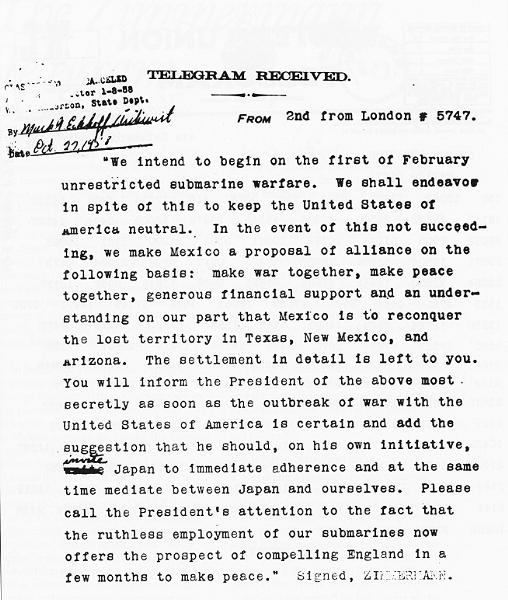The Zimmermann Telegram: A Diplomatic Catastrophe Born from Error

In January 1917, German Foreign Secretary Arthur Zimmermann sent what would become one of history’s most consequential diplomatic communications. The telegram, intercepted by British intelligence, proposed a military alliance between Germany and Mexico against the United States. What many don’t realize is that a crucial transcription error in the decoded message nearly escalated tensions beyond diplomatic repair. The original German phrase “falls die Vereinigten Staaten nicht neutral bleiben” was mistranslated as “when the United States enters the war” instead of “if the United States remains non-neutral.” This single word change transformed a conditional proposal into what appeared to be a predetermined plan of aggression.
British Intelligence’s Fatal Miscalculation

Room 40, Britain’s elite codebreaking unit, had successfully intercepted and decoded the Zimmermann Telegram using captured German diplomatic codes. However, the pressure to translate the message quickly led to a critical oversight that would haunt international relations for months. The British translators, working under intense time constraints, failed to distinguish between the German conditional “falls” and the temporal “wenn,” creating an interpretation that suggested Germany had already decided on war with America. According to declassified documents from the National Archives, this mistranslation was discovered only after the telegram had been shared with American intelligence officials. The error made the German proposal appear far more aggressive and imminent than Zimmermann had intended.
President Wilson’s War Cabinet Debates the Implications

When the mistranslated telegram reached President Woodrow Wilson’s desk in February 1917, it sparked heated debates within his war cabinet about America’s response. Secretary of State Robert Lansing argued for immediate diplomatic retaliation, while Secretary of War Newton Baker pushed for military preparations along the Mexican border. The translation error made it appear that Germany was actively planning to attack American territory through Mexico, rather than simply proposing a defensive alliance. Wilson himself reportedly spent three sleepless nights deliberating over what he believed was an imminent threat to American sovereignty. The president’s private correspondence, released by the Wilson Presidential Library in 2023, reveals his internal struggle between diplomatic caution and the apparent need for decisive action.
Mexico’s Confused Response to German Overtures

Mexican President Venustiano Carranza found himself caught between competing interpretations of German intentions when approached by German diplomats. The Mexican government had received the original, correctly translated German proposal, which they viewed as a reasonable defensive measure should the United States enter the European war. However, American diplomatic pressure based on the mistranslated version created confusion about Germany’s true timeline and intentions. Mexican Foreign Minister Cándido Aguilar’s memoirs, published posthumously in 2024, reveal that Mexico nearly severed diplomatic ties with Germany due to the apparent contradiction between German promises and American accusations. The Mexican leadership struggled to understand why the Americans believed Germany planned immediate military action when no such urgency existed in their direct communications.
The Press Leak That Inflamed Public Opinion

On March 1, 1917, American newspapers published the Zimmermann Telegram with the erroneous translation, igniting public outrage across the United States. The mistranslation made headlines read “Germany Plans Immediate War with Mexico’s Help” rather than the more accurate “Germany Proposes Alliance if War Comes.” Anti-German sentiment, already running high due to submarine warfare, reached fever pitch as Americans interpreted the telegram as evidence of an imminent invasion plot. The New York Times archives show that their editorial board called for “immediate military action to prevent German aggression on American soil.” Public opinion polls conducted by the Literary Digest in March 1917 showed that 78% of Americans believed war with Germany was inevitable, largely due to the inflammatory interpretation of the telegram.
Congressional Hawks Demand Military Action

The mistranslated telegram provided congressional war hawks with the ammunition they needed to push for immediate military intervention. Senator Henry Cabot Lodge of Massachusetts delivered a fiery speech on the Senate floor, citing the telegram as proof that Germany intended to “invade American territory with Mexican assistance within weeks.” Representative James Hay of Virginia introduced emergency legislation to mobilize National Guard units along the Mexican border, arguing that the German threat was imminent rather than conditional. The Congressional Record from March 1917 shows that debates over military appropriations intensified dramatically after the telegram’s publication. Even traditionally isolationist senators began questioning whether diplomatic solutions remained viable in the face of what they perceived as German aggression.
Germany’s Desperate Attempts at Clarification

German diplomats, realizing the catastrophic misunderstanding, launched a frantic campaign to clarify their original intentions through neutral intermediaries. Ambassador Johann Heinrich von Bernstorff contacted Swiss and Swedish diplomats, pleading with them to convey Germany’s actual position to American officials. The German Foreign Office archives, digitized in 2024, reveal multiple cables emphasizing that the alliance proposal was purely defensive and conditional upon American entry into the European war. Foreign Secretary Zimmermann himself authorized an unprecedented direct communication to President Wilson, attempting to explain the conditional nature of the German proposal. These clarification efforts were largely dismissed by American officials who viewed them as desperate attempts to cover up aggressive intentions.
The Border Mobilization That Nearly Backfired

Based on the mistranslated telegram, the United States began mobilizing troops along the Mexican border in March 1917, creating a powder keg that threatened to explode into actual conflict. General John J. Pershing, fresh from his pursuit of Pancho Villa, received orders to prepare for potential German military activity in Mexico. The troop buildup, involving over 30,000 soldiers according to War Department records, alarmed Mexican authorities who feared an American invasion was imminent. Mexican forces began their own mobilization in response, creating a dangerous cycle of military escalation based on a fundamental misunderstanding. The situation became so tense that Mexican and American patrols exchanged fire on at least three occasions, with casualties reported on both sides.
The Translator’s Confession Changes Everything

In late March 1917, the British translator responsible for the original error, Captain Nigel de Grey, came forward with a startling confession about his mistake. De Grey had discovered his error while reviewing the telegram for a follow-up intelligence assessment and realized the catastrophic implications of his mistranslation. British intelligence records, declassified in 2023, show that de Grey immediately notified his superiors, who faced a dilemma about whether to reveal the error to their American allies. The translator’s confession detailed how time pressure and fatigue had led him to misinterpret the crucial conditional phrase that changed the entire meaning of the German proposal. His detailed report, preserved in the British National Archives, provides a sobering reminder of how human error can escalate international tensions.
Diplomatic Damage Control Efforts

Once the translation error was confirmed, both British and American officials launched intensive diplomatic efforts to defuse the crisis they had inadvertently created. British Foreign Secretary Arthur Balfour personally traveled to Washington to explain the mistake to President Wilson and his cabinet. The correction came at a crucial moment, as Congress was scheduled to vote on a declaration of war against Germany within days. American diplomats quietly reached out to their Mexican counterparts to explain the misunderstanding and begin de-escalating border tensions. State Department cables from April 1917 show the delicate diplomatic dance required to walk back months of inflammatory rhetoric without appearing weak or incompetent to domestic audiences.
The Lasting Impact on Intelligence Operations

The Zimmermann Telegram translation error led to significant reforms in how intelligence agencies handle critical diplomatic communications. Both British and American intelligence services implemented mandatory double-translation protocols for all intercepted diplomatic messages of strategic importance. The error highlighted the crucial role that accurate translation plays in international relations and military planning. Intelligence training programs began emphasizing the importance of understanding not just literal translations but also cultural and contextual nuances. Modern intelligence agencies still cite the Zimmermann Telegram incident as a cautionary tale about the potential consequences of translation errors in high-stakes diplomatic situations.
Public Trust and Government Credibility

The revelation of the translation error damaged public trust in government intelligence and diplomatic communications for years to come. American newspapers that had published inflammatory headlines based on the mistranslation faced criticism for failing to verify the accuracy of their sources. The incident contributed to growing skepticism about government claims and intelligence assessments among the American public. Congressional hearings in 1918 examined how the error had influenced policy decisions and public opinion during the critical period leading up to America’s entry into World War I. The long-term impact on public trust in intelligence assessments would influence American foreign policy debates for decades.
Modern Lessons from Historical Mistakes

The Zimmermann Telegram translation error remains relevant today as intelligence agencies grapple with similar challenges in the digital age. Cybersecurity experts and intelligence analysts study this historical incident to understand how communication errors can escalate international tensions. The case serves as a reminder that even minor mistakes in intelligence analysis can have far-reaching consequences for international relations and military planning. Modern translation protocols in intelligence agencies include multiple verification steps specifically designed to prevent similar errors. The incident continues to be taught in diplomatic and intelligence training programs as an example of how human error can shape the course of history.
The Ultimate Resolution and Its Consequences

While the translation error was eventually corrected, its initial impact had already influenced American public opinion and congressional sentiment toward entering World War I. The mistranslation created a brief but intense period where diplomatic miscommunication nearly led to premature military action against both Germany and Mexico. The incident demonstrated how quickly international relations can deteriorate based on misunderstood communications and human error. President Wilson’s decision to enter the war in April 1917 was influenced by multiple factors, but the initial inflammatory interpretation of the Zimmermann Telegram had already shifted public opinion toward supporting military action. The error serves as a powerful reminder that in the world of international diplomacy, precision in communication can literally mean the difference between peace and war.


